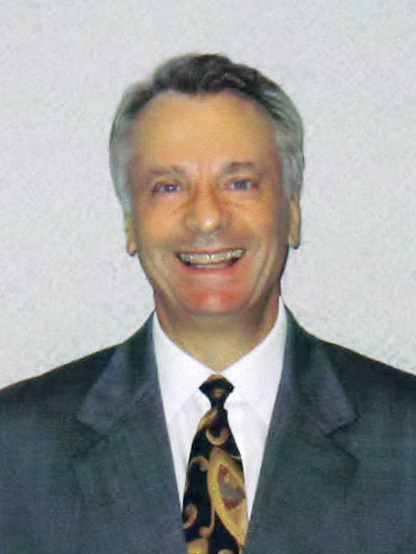A workers’ compensation judge whose decisions have had a significant impact on Florida case law retired last week after 12 years on the bench.

Judge Stephen Rosen
On his next-to-last day in office, St. Petersburg-based Judge Stephen Rosen sat down with WorkCompCentral and talked about what led to some major workers’ comp appeals court rulings in recent years – and his own evolution as a jurist.
Rosen, who spent 35 years as a claimants’ lawyer before donning the robes, also had some words of urgency for the state Legislature and for claimants’ attorneys: The Florida comp system functions pretty well now, he said, but it could soon face trouble if comp judges don’t receive a long-overdue pay raise and if some attorneys continue to pursue fees that outpace actual benefits awards.
“Not that attorney fees aren’t earned, but when the fee is greater than what the worker gets, that concerns me,” Rosen said. “It’s still called ‘workers’ compensation,’ not ‘attorneys’ relief.’”
Rosen pointed out that the landmark 2016 state Supreme Court opinion, Castellanos vs. Next Door Co., struck down statutory limits on attorney fees. That was seen as a boon for injured workers in Florida. Workers with smaller claims could once again find attorneys willing to take their cases because the lawyers could earn reasonable fees, Rosen said.
But since that court decision, some attorneys have found ways to add thousands in fees, which may be deserved but, nonetheless, run the risk of enraging employers and their legislators who could seek new limits on fees.
“Those that want to get the fees reduced can give some statistics and show that a lawyer got $4 for the client and a $16,000 fee,” Rosen said. “And that can be played up to the Legislature, who really don’t know about workers’ comp but they know dollars and cents.”
In one typical example, he explained that an insurance carrier may agree to settle a claim for $50,000 but defer to the claimant’s side on how to divide the payment. The claimant’s lawyer may ask for $20,000 in fees for his work on past benefits, and $30,000 to the worker – with another $7,500 fee from that.
That would mean the attorney receives more than the claimant, Rosen said.
In those types of cases, the judge said he often won’t approve the settlement but will award a $1,500 alternative fee arrangement as allowed by law.
“I’m sure they’re not happy with me but I think that is absolutely the way to go to keep the system flowing along,” Rosen said. “Even when the parties have stipulated to it, I often reject the stipulation as unreasonable because the statute says the judge still has the duty to determine reasonableness of fees.”
Rosen’s sentiments may carry extra weight with plaintiffs’ advocates because of his years of work as a well-known claimants’ lawyer – and because of the respect he’s earned on the bench.
“I support that. What you charge the client matters,” said Mike Winer, a Tampa claimant’s attorney and former president of the Florida Bar’s workers’ compensation section executive council.
Winer said Rosen has been a model compensation judge.
“He was fantastic,” Winer said last week. “He was no-nonsense, fair, even-tempered. Everything an attorney could want in a judge.”
On compensation judges’ salaries, Rosen warned that the lack of a pay raise for almost two decades is scaring away potential candidates who feel they can earn more in private practice.
“We’ve had trouble attracting more applicants. We’ve been fortunate in the last number of years that we’ve gotten good applicants, but very few,” he said.
Compensation judges’ salaries have remained at about $126,000, while circuit and county judges have seen periodic raises and are now paid $27,000 to $36,000 more per year than comp judges. The Florida Legislature in 2020 finally approved a significant pay raise for compensation judges after much lobbying by attorneys around the state.
But Gov. Ron DeSantis vetoed the bill, citing the COVID-19 pandemic’s drain on the state budget. Proponents of the raise were baffled because the salary funding would have come from assessments on insurers, not from the state’s general fund.
“The fact that we haven’t had raises in so long is kind of lack of respect, in my opinion,” Rosen said.
Rosen’s concerns echoed those of Deputy Chief Compensation Judge David Langham, who has spoken out repeatedly on the need for pay raises.
In a recent blog post, Langham also praised Rosen’s judicial and administrative skills, despite some differences of legal opinion. Rosen returned the sentiment.
“He is totally dedicated to the system,” Rosen said about Langham. “We don’t always agree, but he’s always professional. It’s not personal.”
Rosen’s three-term tenure may be best remembered for his decisions in two cases that ultimately led to a major change in Florida case law. Rosen’s opinions were overturned by higher courts, but his basic instincts were proven correct, the state Supreme Court held.
In Matrix Employee Leasing vs. Shawn Hadley, a claim that Rosen adjudicated shortly after becoming a judge in 2009, he determined that Florida statutes left a gaping hole in benefits for some seriously injured workers.
Hadley had not attained maximum medical improvement, yet he had reached the statutory, 104-week limit on temporary total disability benefits.
“It was a tough case for the injured worker, and I said they (the Legislature) couldn’t possibly have thought about leaving this worker out in the cold, so I ruled in his favor,” Rosen said.
He noted the litigation marked the beginning of his evolution from an advocate, wanting to correct glaring errors in law and policy, to a strict jurist who learned to apply the law as written.
“I spent the first six to seven years of my first two terms thinking that I could make the law, thinking that, ‘Oh no, this is what the law should be,’” he said. “Because in workers’ comp, everything is black-letter law. The Legislature passes it, but they can’t anticipate every factual situation that will come up.
“I look at it and say, ‘Wow, they couldn’t have anticipated this and couldn’t have wanted this to happen,’ so I would write my orders the way I thought it should be and, of course, I’d get reversed,” Rosen said.
In Matrix, the 1st District Court of Appeals overruled Rosen and held that the law did not allow permanent total disability to be applied on a temporary basis to fill the gap in benefits.
“What that meant to me was that at the trial level, judges don’t make the law,” Rosen said. “You apply the law and if it’s appealed, the higher courts, the Supreme Court, they can say, ‘Wait a minute, the law’s not right. We’re going to strike it or change it or amend it.’”
That was “like a light bulb going off. I just need to do what the law says, whether I like it or not,” Rosen recalled.
A few years later, though, the Matrix case would play a role in the famous Westphal v. City of St. Petersburg, a claim with an almost identical set of circumstances.
Following his newfound wisdom, Rosen this time sided against the claimant and did not award benefits beyond the 104-week limit despite his concerns for the injured worker. Westphal ended up before the Florida Supreme Court, which in 2016 held that Rosen’s instincts had been right all along: The limits on duration of benefits were unconstitutional.
“The statute deprives a severely injured worker of disability benefits at a critical time, when the worker cannot return to work and is totally disabled, but the worker’s doctors – chosen by the employer – determine that the worker has not reached maximum medical improvement,” the high court’s majority wrote.
“From my standpoint, I thought I was vindicated” on the Matrix decision, Rosen said. “But from the other judges’ standpoint, they said, ‘No, you’ve had two reversals!’”
In a third case, Nancy Blake v. Merck & Co., Rosen also was reversed, but in examining Rosen’s decision, the appeals court in 2011 clarified the law in a ruling that is still cited today. The court established that a worker has not one but three paths to prove entitlement to permanent total disability: through medical evidence, testimony from vocational experts or through an unsuccessful job search.
That’s a comp judge’s version of immortality, Rosen said.
“Once in a while, your name gets thrown around after you’re gone,” he said.
Rosen grew up in Minnesota and graduated from law school at South Texas College of Law in Houston. He and his wife moved to Florida because some of his best friends in law school were from the Sunshine State.
Rosen initially found work with a workers’ comp defense firm but switched to a large claimants’ firm two years later. He now plans to stay in Florida in his retirement, as an independent mediator in compensation cases and perhaps serving as of counsel to comp firms, advising younger lawyers on what judges are looking for.
Rosen’s replacement in the St. Petersburg judge’s office has already been named. Rita Young has served as a judge in the Tampa district and will move across the bay.
The Statewide Judicial Nominating Commission has submitted the names of three attorneys for the governor to choose from to fill Young’s position: Jessica Carrier, of Sarasota; Todd Sanders, of Tallahassee; and Matthew Wheeley, of Odessa.


